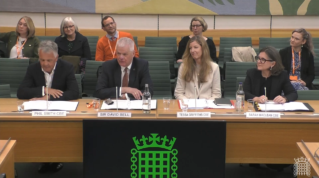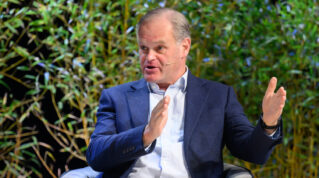The first Mechanics Institutes were a symphony of bright minds and willing hands, forged in the fires of industry. In Darlington, their purpose was clear: engineers for the railways, artisans for the steelworks of the Tees Valley.
These institutions were free, independent; they charged what they wished and governed themselves as they saw fit. Their lifeblood intertwined with the community they served.
But education, free education, became a political darling. The government, ever watchful, sought to bring these renegade institutes to heel.
Thus, the technical colleges were born, tethered to local levies. Freedom, however, came with strings, and those strings multiplied over the next century. Colleges were pulled away from their communities and into the grip of government oversight.
FE had become a house of two masters: the government and the community.
Like a puppet guided by two right hands, with very different ideas of where and how to move us, the sector has met key moments in our national story either pulled in different directions or in a complete tangle.
Now, we find ourselves on the precipice of another struggle for control. Skills shortages, an economy struggling for growth, seismic shifts in the workplace and record-low levels of investment in the workforce demand action.
But who is leading the dance? Who will accept the responsibility?
Bridget Phillipson’s recent announcement was a disasterpiece. A 5.5 per cent pay rise for school teachers left FE staff with nothing.
Unions crying out for clarity and a path forward were met with silence, save for murmurs of abandonment. Social feeds now buzz with a pattern too deliberate to ignore: the DfE preparing to cut us loose, to hand the controls to another.
Enter Skills England, with Baroness Jaqui Smith at the helm. Another string for the marionette? What does this mean for us, the lecturers, support staff, technicians and curriculum planners?
The optimist’s view
This could be a string that binds us closer to our communities.
Imagine greater access to funding and materials that cater to local needs. IT departments no longer shackled to outdated specs, engineering programs thriving with local manufacturers, green industrial revolutions fuelling our net zero aims and economic objectives.
Skills England could be a regulatory body that understands us, not as an afterthought but as a vital service to our communities. A smaller, more agile entity could mean greater adaptability and a focus on real-world skills.
True: without proper pay, better conditions and adequate funding, we won’t attract the skilled lecturers we need. But it’s a dream worth having.
The pessimist’s lament
The DfE’s takeover was supposed to include us in the national conversation, to elevate our pay and provide funding stability. Instead, we became curiosities, our efforts met with surprise and misunderstanding.
Politicians from all parties still assume our work is well-paid, easy and selective.
As an English resit teacher, I’ve met many who didn’t realise we don’t teach English literature or even read books in English language courses.
Our colleges are inspected by Ofsted, yet remain outside the scope of the one-word judgement ban designed to reduce fear and stress.
Why believe Skills England will be different? Another central system, blind to our sector’s nuances, likely to hand us over once again. Experience has taught us this outcome is probable.
A flicker of hope
Who knows what the future holds? What little control we have is in our contributions to the curriculum and assessment review consultation. Here, at least, there is a focus on our sector – and we have a voice.
Skills England has the potential to at least untangle our strings, set us straight and centre-stage, ready to play our part.
And that alone could begin to reverse the fortunes of the working class. Baroness Smith, despite the grandiosity of her title, may be the catalyst for change we need – the change our communities need. It’ll be tough, expensive, but oh-so necessary.
So let’s ready the bricklayers and mechanics. There are foundations to lay and an economic engine to fine-tune. Let’s ready the chefs too, because this omelette won’t get made without breaking some eggs.
And let’s ready the creatives and the activists. Because this puppet needs some clear direction and some political certainty.

















Your thoughts